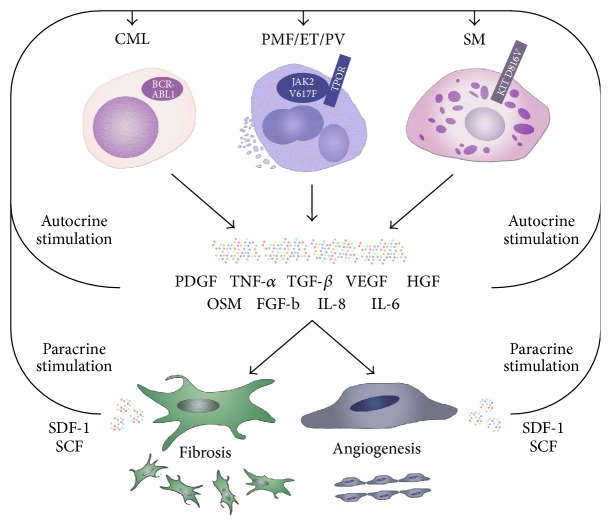Figure 1.
Inflammatory cytokines induce alterations of the bone marrow microenvironment and mediate autocrine and paracrine stimulation of neoplastic cells in myeloproliferative neoplasms. Neoplastic hematopoietic cells in chronic myeloid leukemia (CML), polycythemia vera (PV), essential thrombocythemia (ET), primary myelofibrosis (PMF), and systemic mastocytosis (SM) secrete various cytokines including fibroblast growth factor (FGF), hepatocyte growth factor (HGF), interleukin-6 (IL-6), IL-8, oncostatin M (OSM), platelet derived growth factor (PDGF), transforming growth factor-β (TGF-β), tumor necrosis factor-α (TNF-α), and vascular endothelial growth factor (VEGF). These cytokines bind to their receptors on the surface of fibroblast, endothelial cells, and other cells of the bone marrow stroma and induce fibrosis and angiogenesis. In turn, cytokine production in stromal cells (e.g., stroma derived factor-1, SDF-1, or stem cell factor, SCF) has been implicated in proliferation, migration, and clonal selection of hematopoietic cells as well as in resistance to therapy.

